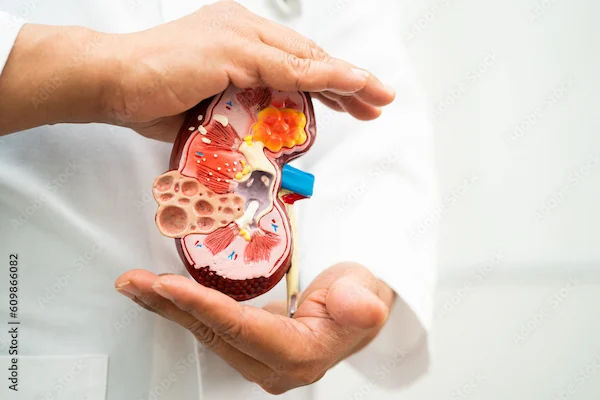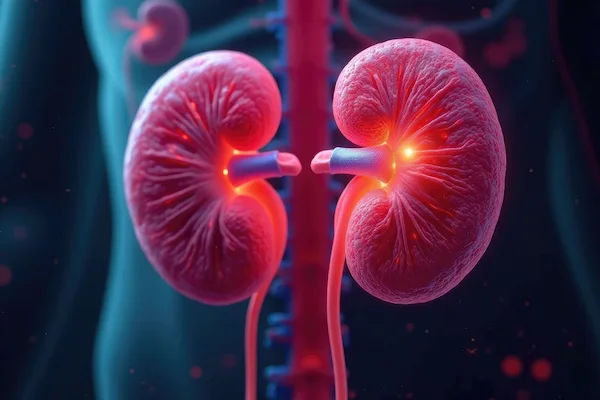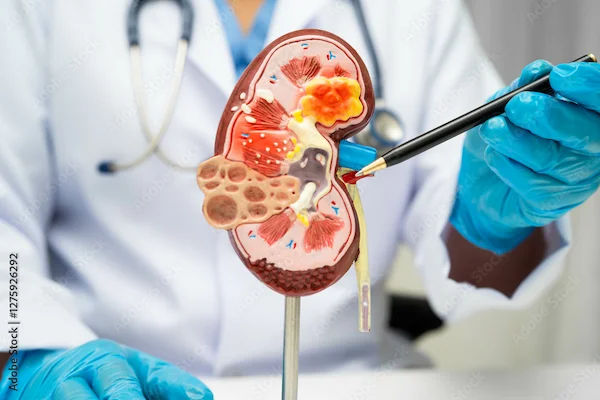Precautions After Kidney Transplant
Navigate life after a kidney transplant with essential precautions. Learn about managing immunosuppressants, preventing infection, dietary guidelines, avoiding rejection, and staying healthy long-term.

Written by
Last updated on 13th Jan, 2026
_9.webp?tr=q-80,f-webp,w-350,dpr-2,c-at_max 700w)
Introduction
Undergoing a kidney transplant is a lifechanging event that offers a new lease on life. However, the journey doesn’t end with the surgery—it’s essential to follow certain precautions to ensure your new kidney stays healthy and functions well for years to come.
This guide will help you understand the key precautions after a kidney transplant, including medication management, lifestyle adjustments, and infection prevention, so you can live a full and active life.
Why Are Precautions Important After a Kidney Transplant?
After a kidney transplant, your immune system is suppressed (weakened) to prevent it from rejecting the new organ. While this is necessary, it also makes you more vulnerable to infections and other health risks. Following posttransplant precautions helps:
Prevent organ rejection
Reduce infection risks
Maintain overall health
Improve longterm kidney function
By staying vigilant, you can enjoy a better quality of life while protecting your new kidney.
Key Precautions After Kidney Transplant
Things to keep in mind:
1. Take Your Medications Religiously
Immunosuppressants (antirejection medicines) are crucial to prevent your body from attacking the new kidney. Missing doses can lead to rejection.
Follow your doctor’s prescription strictly.
Never skip or adjust doses without consulting your doctor.
Set reminders (alarms, pill organizers) to stay on track.
Keep a stock of medicines and refill them before they run out.
2. Protect Yourself from Infections
Since your immune system is weaker, infections can be more severe.
Wash hands frequently with soap and water.
Avoid crowded places (especially in the first few months).
Stay away from sick people (colds, flu, infections).
Wear a mask in public if advised by your doctor.
Keep vaccinations up to date (but avoid live vaccines like MMR unless approved).
3. Maintain a Kidney Friendly Diet
A balanced diet supports kidney health and overall wellbeing.
Eat fresh, homecooked meals to avoid infections.
Limit salt and processed foods to control blood pressure.
Avoid grapefruit and pomegranate (they interfere with medications).
Stay hydrated (unless your doctor advises fluid restriction).
Monitor protein intake (too much can strain the kidney).
4. Exercise Regularly (But Safely)
Physical activity helps maintain a healthy weight and reduces stress.
Start with light exercises (walking, stretching).
Avoid heavy lifting (especially in the first few months).
Consult your doctor before starting intense workouts.
5. Monitor Your Health Closely
Regular checkups help detect problems early.
Check blood pressure daily (high BP can damage the kidney).
Monitor weight (sudden gain may indicate fluid retention).
Watch for signs of infection (fever, fatigue, swelling).
Get routine blood tests to check kidney function.
6. Avoid Harmful Substances
No smoking or alcohol (they harm kidney function).
Limit caffeine (can raise blood pressure).
Be cautious with over-the-counter medicines (some painkillers can damage kidneys).
7. Protect Your Skin from Sun Damage
Immunosuppressants increase skin cancer risk.
Use sunscreen (SPF 30+) when outdoors.
Wear protective clothing (hats, long sleeves).
Avoid tanning beds.
8. Stay Mentally Healthy
Transplant recovery can be emotionally challenging.
Talk to a counselor if feeling anxious or depressed.
Join a support group for transplant patients.
Practice relaxation techniques (meditation, deep breathing).
Consult Top Nephrologists
When to Call Your Doctor?
Contact your transplant team immediately if you notice:
Fever above 100.4°F (38°C)
Swelling, pain, or tenderness near the transplant site
Decreased urine output
Severe fatigue or dizziness
Unusual weight gain (fluid retention sign)
Final Thoughts
A kidney transplant is a gift of life, and taking proper precautions ensures its longterm success. By following your doctor’s advice, staying vigilant about infections, eating well, and keeping up with regular checkups, you can enjoy a healthy and fulfilling life.
If you have any concerns or need guidance, don’t hesitate to reach out to your healthcare team. Apollo24|7 offers specialized post transplant care—book a consultation today for expert advice.
Consult Top Nephrologist
Consult Top Nephrologists

Dr. Kity Sarkar
Nephrologist
15 Years • MBBS,MD(Genl. Med.), DrNB(NEPHROLOGY)
Kolkata
Dr. Kity Sarkar's Clinic, Kolkata

Dr. Pardha Saradhi
Nephrologist
9 Years • MBBS, MD-DNB (Gen. Med.), DNB (Nephro)
Hyderabad
Apollo Hospitals D R D O kanchanbagh, Hyderabad
(75+ Patients)

Dr. Hareesha Babu K
Nephrologist
25 Years • MBBS, MD (General Medicine), DM (Nephrology),FASN, FRCP(Glasg), FRCP (Edin)
Bangalore
Kidney & Hypertension Care, Bangalore
Dr Gayatri Pegu
Nephrologist
15 Years • MD (General Medicine) DM(Nephrology)
Guwahati
Apollo Clinic Guwahati, Assam, Guwahati
Dr Ch Sashidhar
Nephrologist
20 Years • MBBS, MD General Medicine, DNB, Nephrology
Secunderabad
Apollo Hospitals Secunderabad, Secunderabad
Consult Top Nephrologist

Dr. Kity Sarkar
Nephrologist
15 Years • MBBS,MD(Genl. Med.), DrNB(NEPHROLOGY)
Kolkata
Dr. Kity Sarkar's Clinic, Kolkata

Dr. Pardha Saradhi
Nephrologist
9 Years • MBBS, MD-DNB (Gen. Med.), DNB (Nephro)
Hyderabad
Apollo Hospitals D R D O kanchanbagh, Hyderabad
(75+ Patients)

Dr. Hareesha Babu K
Nephrologist
25 Years • MBBS, MD (General Medicine), DM (Nephrology),FASN, FRCP(Glasg), FRCP (Edin)
Bangalore
Kidney & Hypertension Care, Bangalore
Dr Gayatri Pegu
Nephrologist
15 Years • MD (General Medicine) DM(Nephrology)
Guwahati
Apollo Clinic Guwahati, Assam, Guwahati
Dr Ch Sashidhar
Nephrologist
20 Years • MBBS, MD General Medicine, DNB, Nephrology
Secunderabad
Apollo Hospitals Secunderabad, Secunderabad


_4.webp)

